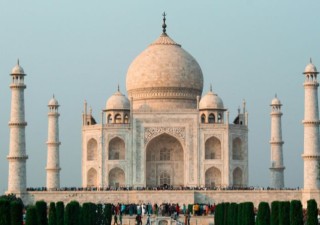‘Musical Scales’ in Indian Copyright Law: Introducing the Right to Receive Royalty (The R3 Right) of the ‘Performer Owner’ in a Song
17 February 2015

As part of India’s Copyright (Amendment) Act, 2012, a significant amendment was made in the recognition and reinforcement of performers rights irst introduced in 1994. The Rules accompanying the Copyright Act have also been amended to provide the setting up of a separate performers’ society for each class of performer, while also stating that the royalty collected from enjoyment of the performer’s exclusive rights as stipulated in Section 38A of the copyright act “shall be shared equally between the performer and other owner of copyright.”
India introduced performers rights in 1994 to provide protection to Indian classical musicians and singers for their improvisations during performances. By 2012, performers were elevated to the status of exclusive owners of performers’ rights.
The Indian Singers’ Rights Association (ISRA) is a registered copyright society and the first copyright society to be registered after the 2012 amendments. ISRA is a non-proit body established to monitor, protect and enforce the rights, interests and privileges of its members comprising of performers who are singers. Each singer is the owner of the performer’s right in a song, and in addition to the exclusive performer’s right also has the inalienable Right to Receive Royalty (the R3 right) under Section 38A for the commercial exploitation of their performance as a singer.
The board of directors of ISRA includes renowned Indian singers Lata Mangeshkar, Pankaj Udhas, Alka Yagnik, Sonu Nigam and has 249 Indian singers as its members. Renowned singer Lata Mangeshkar is said to be the irst Indian singer to raise her voice – in the 1960s – for the R3 right. Back then, Mangeshkar demanded a halfshare from the 5% song royalty that a few composers of songs were being given.
The emerging changes in the economic and moral standing of singers as performers is relective in the recent amendments to the Copyright Act in 2012, speciically by the recognition of their exclusive right against unauthorized exploitation of their performance. These amendments in the law further make it clear that a singer has the right to receive royalty for his/her performance as singer. The public enjoying the songs for commercial purposes will have to take into consideration the creative contribution of a singer in the song. The importance of a performer in a musical context can be best understood as most people are unable to appreciate a piece of music without it being performed by a singer. Therefore, the skill and effort put in by a singer as performer of a musical work is essential to the enjoyment of music by the public.
In conclusion, given below is a short musical rendition of the law in India for singers as performers.
DO: Do Performer owners of a song have any rights after the song is incorporated in a ilm under a written agreement? Yes, despite a written agreement by the performer owner for a song to be incorporated in a ilm, he will still be entitled to the inalienable the R3 Right.
RE: Remedies available for misuse of performer owners’ rights. Section 55 of the copyright act stipulates the civil remedies for infringement of copyright and has been made applicable to performers’ rights. Hence, remedies of injunction, damages and accounts are available for infringement of performers’ rights.
MI: Misuse of performers’ rights. A few examples include unauthorized acts of reproduction and issuance of copies of to the public not being copies already in circulation; communication of it in public or selling or giving it on commercial rental or offer for sale or for commercial rental any copy of the recording; and unauthorized broadcast or communication of the performance to the public.
FA: Favourable order. In Indian Singers’ Rights Association v. Night Fever Club & Lounge, the Delhi High Court restrained a club playing a varied genre of songs including Bollywood, non-ilm tracks, South Indian songs and Punjabi songs within its public spaces, including the restaurant and bars, from communicating to the public ISRA’s repertoire comprising of performances of its members without obtaining a licence from ISRA.
SO: Society registered for collective management of performers. ISRA is a registered copyright society for singers as a category of performers
LA: Law provisions applicable? Performers’ rights include exclusive rights, economic rights as well as moral rights as enshrined in Sections 38, 38 A, 38B and 39A of the Copyright Act, 1957 as amended by The Copyright (Amendment) Act, 2012 (27 of 2012) and Rule 68 of the Copyright Rules 2013.
TI: Till when does the performers’ right last? A performer’s right subsists until 50 years from the beginning of the calendar year next following the year in which the performance is made [Section 38(2)].
DO: Do performers have moral rights? Yes. A performer retains his moral rights of paternity, distortion, mutilation or other modiication detrimental to his reputation even on assignment of his right [Section 38B].
Anand and Anand
First Channel Building
Plot No. 17 A, Sector 16 A
Film City, Noida 201301 (UP)
India
T: +91 120 4059300
F : +91 120 4243056 - 058
E : email@anandandanand.com
W: www.anandandanand.com






